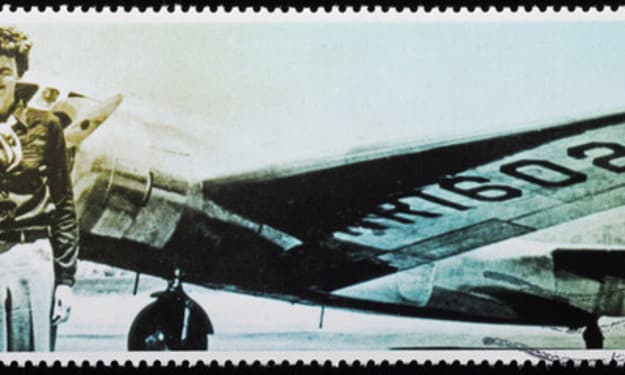The Untold Story of WhatsApp: From Startup to Acquistion
WhatsApp is one of the most widely used messaging apps in the world with over 2 billion active users. From humble beginnings as a startup created by two former Yahoo employees, WhatsApp was acquired by Facebook in 2014 for a whopping $19 billion. In this article, we'll take a closer look at the untold story of WhatsApp and explore its impact on the messaging industry and the lessons that entrepreneurs and investors can learn from its success and failure.

WhatsApp is one of the most widely used messaging apps in the world with over 2 billion active users. From humble beginnings as a startup created by two former Yahoo employees, WhatsApp was acquired by Facebook in 2014 for a whopping $19 billion. The story of WhatsApp's journey from startup to acquisition is a fascinating one that sheds light on the company's mission, values, culture, and business model. In this article, we'll take a closer look at the untold story of WhatsApp and explore its impact on the messaging industry and the lessons that entrepreneurs and investors can learn from its success and failure.
The Birth of WhatsApp: Founders, Mission, and Early Days
Meet the Founders: Jan Koum and Brian Acton

WhatsApp was founded in 2009 by Jan Koum and Brian Acton, two former Yahoo employees who shared a vision of creating a communication platform that was both private and simple. Koum, who grew up in Ukraine, and Acton, a Michigan native, met while working at Yahoo in the late 1990s and bonded over their shared passion for coding.
The WhatsApp Mission: Connecting People through Privacy and Simplicity
The WhatsApp mission was to connect people all around the world through an easy-to-use messaging app that was focused on privacy and simplicity. From day one, the company's founders were committed to creating a platform that put users first, prioritizing their experience and security above all else.
The Early Days: From Yahoo to WhatsApp
The early days of WhatsApp were tough, with Koum and Acton struggling to gain traction for their fledgling app. However, they refused to give up, pouring all their resources into product development and user acquisition. Finally, in 2011, their hard work paid off, and WhatsApp began to gain momentum, quickly becoming one of the most popular messaging apps in the world.
The Growth Phase: User Acquisition, Funding, and Product Development
The WhatsApp User Base: How It Grew from Zero to Millions
WhatsApp's user base grew rapidly, thanks to its innovative features and focus on user privacy. By 2014, the company had over 400 million active users, and it continued to grow at an impressive pace. Its success was due in large part to its strategic partnerships with mobile carriers around the world, which helped it to expand its reach and acquire new users.
Funding the Growth: Who Invested in WhatsApp and Why
WhatsApp's success also attracted some high-profile investors, including Sequoia Capital and Facebook. These investors recognized the company's potential and were eager to get in on the ground floor of what promised to be a major disruptor in the messaging space.
Product Development: New Features, Improvements, and Innovations
Product development was a key driver of WhatsApp's growth, with the company continually adding new features and improvements to its platform. Some of these innovations included voice calling, end-to-end encryption, and the ability to send files and documents. These features helped to keep users engaged and attracted new users to the platform.
The WhatsApp Business Model: How It Made Money
The WhatsApp Revenue Streams: From Subscription Fees to Business Solutions

WhatsApp's revenue model was initially based on a subscription fee, with users paying a small fee to use the service after a year of free usage. However, in 2016, the company scrapped this fee and began exploring new revenue streams, including enterprise solutions and advertising.
WhatsApp vs Competitors: Monetization Strategies Compared
WhatsApp's monetization strategy was unique compared to many of its competitors, who relied on advertising or selling user data to generate revenue. WhatsApp's commitment to user privacy meant that it had to find other ways to make money, and its emphasis on enterprise solutions proved to be a successful strategy.
The Turning Point: Facebook Acquisition and the Aftermath
The Facebook Offer: The Story Behind the $19 Billion Deal

In 2014, Facebook made a stunning $19 billion offer to acquire WhatsApp, a move that shocked the tech industry and raised questions about the future of the messaging platform. However, Koum and Acton ultimately decided to accept the offer, citing Facebook's commitment to privacy and user experience.
The Post-Acquisition Era: Integration, Expansion, and Controversies
Following the acquisition, WhatsApp continued to operate as an independent company, with Koum and Acton retaining control over the platform. However, tensions soon emerged between the founders and Facebook, with Koum eventually leaving the company in 2018. WhatsApp also faced several controversies, including criticism over its handling of user data and the spread of fake news on its platform.
WhatsApp Today: A Facebook Subsidiary with a Strong Independent Identity
Today, WhatsApp is part of the Facebook family, but the platform retains its commitment to user privacy and simplicity. With over 2 billion users worldwide, WhatsApp remains one of the most popular messaging apps in the world, providing a critical communication lifeline for millions of people around the globe.the Current Market
Behind the Scenes of WhatsApp's Acquisition by Facebook: Negotiations, Risks, and Outcomes
The Story of WhatsApp's Acquisition: From $19 Billion Offer to Final Deal
The Risks and Rewards of Selling a Startup: Insights from WhatsApp and Other Acquisitions
The Aftermath of the Acquisition: How WhatsApp and Facebook Faced Public Scrutiny and Regulatory Challenges
Inside the WhatsApp Culture: Values, Leadership, and Employee Relations
The WhatsApp Culture: Core Values, Beliefs, and Behaviors
WhatsApp has been known for its distinct culture, which is shaped by its core values, beliefs, and behaviors. At its core, WhatsApp believes in simplicity, privacy, and reliability. The company is known for its minimalist design, with no ads, games, or other distractions, which allows users to focus on their communications.
Privacy is also a key value for WhatsApp. The company uses end-to-end encryption to ensure that messages are secure and cannot be accessed by third parties. As a result, WhatsApp has developed a reputation for being a private and secure messaging app, which has attracted millions of users worldwide.
Finally, reliability is another key belief for WhatsApp. The company strives to provide a seamless and stable user experience, with minimum downtime and maintenance issues. This has helped WhatsApp to become a popular and trusted messaging app, with high user satisfaction ratings.
Leadership and Management: The Role of Jan Koum and Other Key Figures
Jan Koum, one of the co-founders of WhatsApp, has been instrumental in shaping the company's culture and leadership. Koum, who was born in Ukraine and immigrated to the United States, has been a passionate advocate for privacy and user-centric design. He is known for being a hands-on CEO, who is involved in every aspect of the company's operations.
Other key figures in WhatsApp's leadership team include Brian Acton, another co-founder, and Neeraj Arora, the company's business head. Acton and Arora have played important roles in driving WhatsApp's growth and expansion, as well as managing the company's relationships with stakeholders and partners.
The WhatsApp Team: Diversity, Talent, and Employee Satisfaction
WhatsApp has a diverse and talented team, with employees from over 70 countries. The company has a flat hierarchy, with a focus on collaboration and teamwork. WhatsApp also offers a range of perks and benefits, including free meals, gym memberships, and flexible working hours, which have helped to keep employees satisfied and engaged.
Overall, WhatsApp's culture is characterized by a strong focus on simplicity, privacy, and reliability, as well as a commitment to diversity, talent, and employee satisfaction. These values and beliefs have helped to shape the company's identity and reputation, as well as its success in the messaging industry. WhatsApp's journey from startup to acquisition is a remarkable story of innovation, growth, challenges, and opportunities. As we look back at WhatsApp's legacy and forward to its future, we can learn valuable lessons about entrepreneurship, leadership, culture, and strategy. Whether you're an aspiring startup founder, a seasoned investor, or a curious user, WhatsApp's story is one that will continue to inspire and inform us for years to come.
About the Creator
Krishna raj
"If your dreams don't scare you, they're too SMALL"






Comments
There are no comments for this story
Be the first to respond and start the conversation.